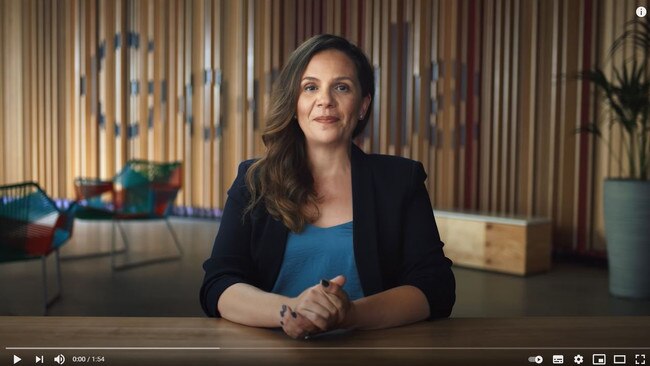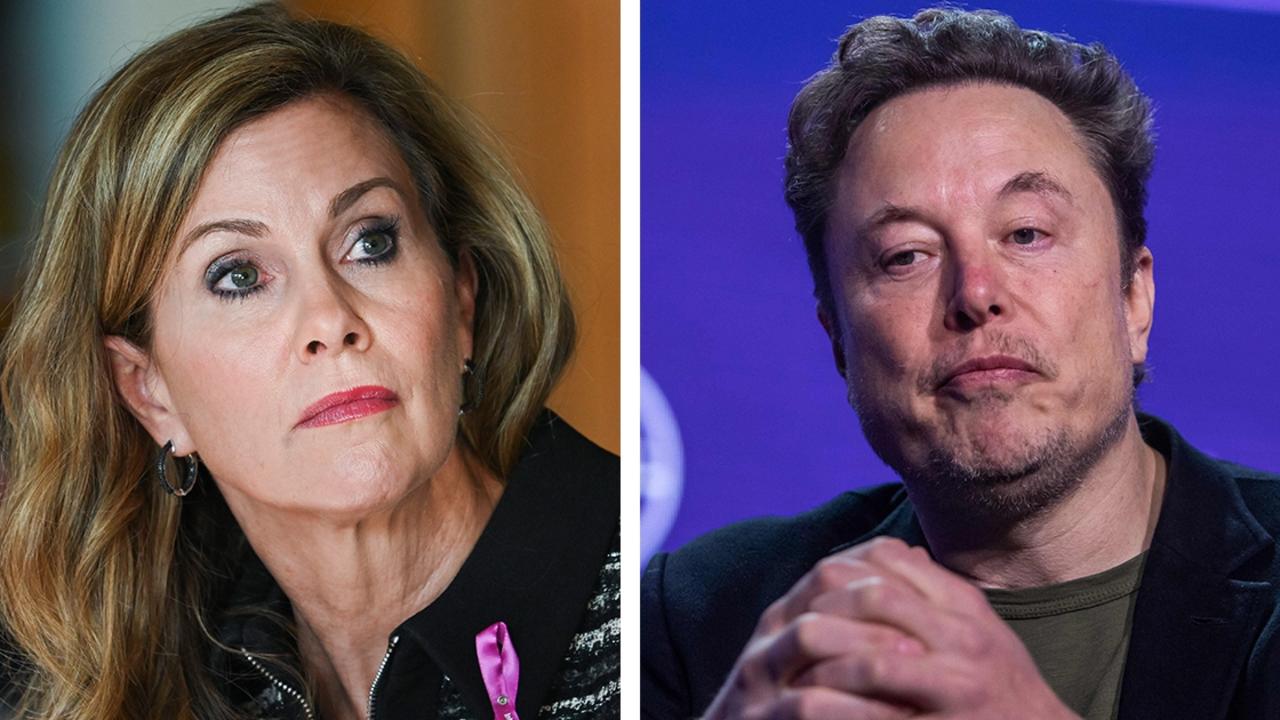Google ramps up campaign against new code by dominating own search results
If you’ve searched for anything in Google over the past few days, you would have been this message. And people are far from happy.
Online
Don't miss out on the headlines from Online. Followed categories will be added to My News.
If you’ve tried to search something on Google recently, a big pop up is dominating your search results.
That’s because the tech giant is encouraging users to click the link, which takes them to a YouTube video message from the company’s managing director in Australia, Mel Silva.
The pop up reads, “You may have heard about a proposed law. We are willing to pay to support journalism” and encourages users to hear Google’s proposal.
Ms Silva warns that the news media bargaining code – proposed legislation which will force big tech companies to pay for Australian news content – will “break how Google Search works in Australia”.
“I know that sounds pretty full on, but it’s true,” she says.
Twitter is alight with people talking about the annoying pop up, with one journalist tweeting, “Google’s campaign against the news media bargaining code is wild”, telling the tech giant to pull its head in.
“We already do not decide which sites to go to. Google algorithms decide what we are allowed to see and what goes against their agenda,” someone commented on the video.
Many were making fun of the fact they went to search something like granny flats and ended up there.
“You can go google, i have been using duckduckgo anyway,” another said, while someone else said they would stick to bing.
Someone said the statement Ms Silva made that, “We don‘t tell you where to go, we just show you links” was not true because they “heavily edit and curate what links go where and in what order and often end up hiding/never showing entire groups of links because you decide whether they’re in line with Googles views”.
“Don‘t let the door hit you on the way out!,” wrote another.
The move comes after last Friday’s dramatic threat from Ms Silva, who said Google would have no choice but to make Google Search unavailable in Australia if the government succeeded in implementing the new media code.
RELATED: Senate inquiry kicks off into news bargaining code


In a massive escalation of its opposition, she said the trillion-dollar US firm would no longer allow Australians to use its search engine if the government enacted the code as proposed.
Speaking at a senate inquiry into the code on Friday, Ms Silva conceded the company had only paid $59 million in corporate tax last year, despite a gross revenue of $4.8 billion.
But she claimed a requirement for the company to pay for links and snippets would make Google Search unviable in Australia.
“The principle of unrestricted linking between websites is fundamental to search and coupled with the unmanageable financial and operational risk,” she said.
“If this version of the code were to become law, it would give us no real choice but to stop making Google Search available in Australia.”
Greens senator Sarah Hanson-Young accused Google taking a “my way or the highway approach”.
She said the tech giant was threatening to block all Australians from using Google Search, despite news searches making up just 1.25 per cent of searches on the platform.
“That’s a hell of a threat,” she told Ms Silva.
“And it doesn’t seem to add up with the facts that you’ve presented yourself about the impact that this would have just on news content in Australia.”
RELATED: Google’s ‘dominant’ grip on Australia

The bill also includes an independent umpire that would choose between offers put forward by each side, if the parties could not agree on a fee for news content.
Ms Silva said the arbitration process had been “chosen specifically to ensure speed and efficiency” but was a model used when there was not much debate over the cost of a fee.
She said Google was “not opposed to paying publishers for value, but the details matter”.
“This is a very one-sided and untested approach that’s actually never been used in a mandatory code before without consent of both parties,” she said.
On Friday, Facebook Australian public policy vice-president Simon Milner also doubled-down on the social network’s threat to remove all news stories from its platform in Australia if the news code was to go ahead as drafted.
In her new video, Ms Silva outlines how Google has proposed it pay publishers for their content through its newly launched News Showcase fund instead of paying for links in search results.
MEDIA PUSH TO MAKE JOURNALISM SUSTAINABLE
News Corp executive Campbell Reid said the laws confronted the “urgent problem” of making journalism viable in the digital age.
He said the revenue of Australian media outlets had steadily declined despite their audiences increasing.
News Corp Australia, the Australian Associated Press, Guardian Australia and Nine all confirmed they had held unsuccessful negotiations with Google and Facebook.
Mr Reid said while Google had voiced concerns over the legislation it had failed to outline what elements needed to be fixed.
“The ball’s in their court to tell us what specifically needs to be changed,” he said.
“There’s always the next problem, particularly with Google. So we can solve this problem that now, (but) there’s another issue.
“We have to wonder: are they intending to negotiate to a conclusion?”
A Google spokesman this afternoon provided a statement to news.com.au saying they are “fully committed to reaching a Code that works for everyone”.
“We’re providing information to our users, as we have the entire way through this process, to ensure they know our position - which is that we are willing to pay to support Australian journalism and are proposing reasonable changes to the law to make it workable,” he said.
“Withdrawal of Google Search from Australia is our worst case scenario and the last thing we want to have happen––but the Code, as it stands, would leave us with no real choice.
“There are many respected voices who also have serious concerns about the Code in its current form and its impacts, both intended and unintended, as indicated in submissions to the Senate Inquiry, including from the creator of the world wide web, the Business Council of Australia, and from the Australian technology community like Atlassian.”
Originally published as Google ramps up campaign against new code by dominating own search results



